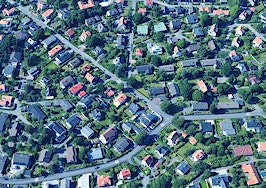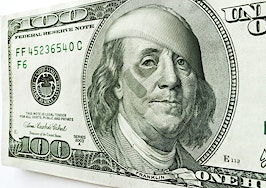A drop in mortgage rates drove increased interest in both purchase loans and refinancing last week, according to the latest survey by the Mortgage Bankers Association.
The MBA’s Weekly Mortgage Applications Survey showed requests for loans were up 2.1 percent on a seasonally adjusted basis during the week ending May 7 compared to the week before.
Most of that increase was due to a surge in applications to refinance, which grew 3 percent from the week before. That was the highest level of demand in eight weeks, but still represented a 12 percent decline from a year ago.
Purchase loan applications were up 1 percent from the week before, but that represented a 13 percent increase from a year ago, when the pandemic was denting home sales.

Joel Kan
“Most markets this spring continue to see robust demand, but activity continues to be constrained by insufficient inventory levels, as well as homebuilder challenges related to the ongoing shortages and price increases for building materials,” said MBA Chief Economist Joel Kan in a statement.
Applications to refinance accounted for 61.3 percent of all applications, up from 61.0 percent the previous week. Requests for adjustable-rate mortgage (ARM) loans accounted for only 3.8 percent of total applications. Government-backed loans attracted nearly one in four applications, with requests for FHA mortgages accounting for 9.9 percent of requests, VA 11.7 percent of requests, and USDA 0.5 percent of requests.
Mortgage rates fell last week to the lowest levels since February, with the MBA survey reporting the average contract interest rate for the following types of loans:
- Rates on 30-year fixed-rate mortgages with conforming loan balances ($548,250 or less) decreased to 3.11 percent from 3.18 percent, with points decreasing to 0.32 from 0.34 (including the origination fee) for 80 percent loan-to-value ratio (LTV) loans. The effective rate decreased from last week.
- For 30-year fixed-rate jumbo loans (balances greater than $548,250), rates decreased to 3.27 percent from 3.31 percent, with points increasing to 0.34 from 0.27 (including the origination fee) for 80 percent LTV loans. The effective rate decreased from last week.
- Rates on 30-year fixed-rate FHA mortgages decreased to 3.07 percent from 3.13 percent, with points increasing to 0.34 from 0.22 (including the origination fee) for 80 percent LTV loans. The effective rate decreased from last week.
- For 15-year fixed-rate mortgages, rates decreased to 2.49 percent from 2.54 percent, with points decreasing to 0.29 from 0.31 (including the origination fee) for 80 percent LTV loans. The effective rate decreased from last week.
- Rates for 5/1 ARMs decreased to 2.57 percent from 2.76 percent, with points decreasing to 0.22 from 0.23 (including the origination fee) for 80 percent LTV loans. The effective rate decreased from last week.
In their latest forecast, economists at Fannie Mae said they expect a gradual rise in rates over the next 18 months, with rates on 30-year fixed-rate mortgages averaging 3.5 percent by the final quarter of 2022.







